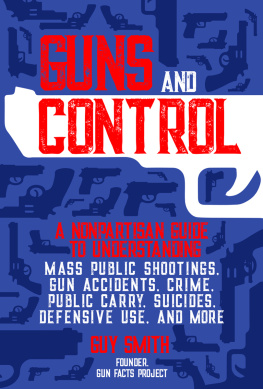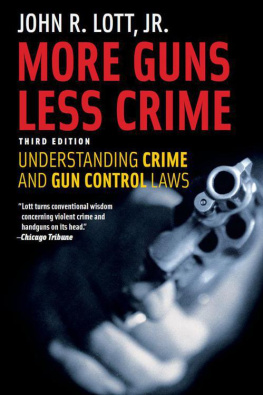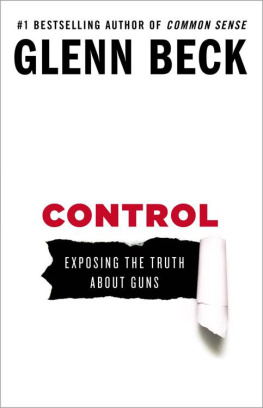

Copyright 2020 by Guy Smith
All rights reserved. No part of this book may be reproduced in any manner without the express written consent of the publisher, except in the case of brief excerpts in critical reviews or articles. All inquiries should be addressed to Skyhorse Publishing, 307 West 36th Street, 11th Floor, New York, NY 10018.
Skyhorse Publishing books may be purchased in bulk at special discounts for sales promotion, corporate gifts, fund-raising, or educational purposes. Special editions can also be created to specifications. For details, contact the Special Sales Department, Skyhorse Publishing, 307 West 36th Street, 11th Floor, New York, NY 10018 or .
Skyhorse and Skyhorse Publishing are registered trademarks of Skyhorse Publishing, Inc., a Delaware corporation.
Visit our website at www.skyhorsepublishing.com.
10 9 8 7 6 5 4 3 2 1
Library of Congress Cataloging-in-Publication Data is available on file.
Cover design by 5mediadesign
Print ISBN: 978-1-5107-6007-3
Ebook ISBN: 978-1-5107-6008-0
Printed in the United States of America
Dedicated to Rosie, Charlie, and Michael. Just thinking of you makes me smile.
Also dedicated to the hundreds of Gun Facts volunteer researchers who have helped to make dispassionate discussions possible through great data and their hard work.
Contents
by Lt. Col. Dave Grossman, US Army (ret.)
by David T. Hardy, Former Associate Editor of the Arizona Law Review
Foreword
By Lt. Col. Dave Grossman, US Army (ret.)
Y OU HOLD IN YOUR HANDS the single best scientific, statistical analysis available on the issue of guns and gun control. If you truly desire just the facts and not propaganda on this critical subject, then this is the book for you.
As you read through this book, you will begin to understand the Herculean task that Guy Smith has set for himself in assembling this body of data. Allow me to explain some complexities about guns and violence to illustrate why Guys distillation is important.
First is the subject of media violence and its impact on violence in our society. This topic was just too far outside Guys scope in writing this book. Guy has done a great job covering the subject of media contagion (his suggestion that we are really looking at competition killers, instead of mass murders, is brilliant), and we both recommend my book, Assassination Generation, for more information on that aspect of the subject.
Additionally, I co-authored the book Control: Exposing the Truth About Guns with Glenn Beck (which made the New York Times Best Sellers list), and I think we did a good job of covering the nexus between media violence and violence in our society. It would make a great companion to this book, if you would like more information.
One other aspect of the complexity associated with the task that Guy Smith has set for himself is the impact of medical technology holding down the murder rate. Over any period of time, the murder rate (the raw number of dead people) completely under-represents the problem, because the medical community is saving ever more lives.
In 2002, Anthony Harris and a team of scholars from the University of Massachusetts and Harvard published a landmark study in the journal Homicide Studies which concluded that medical technology advances since 1970 have prevented approximately three out of four murders. That is, if we had 1970s-level medical technology, the murder rate would be three or four times higher than it is today.
One medical expert told me that he believes tourniquet use alone, in the last decade, may have cut the murder rate in half. Today, every cop and EMT carries a tourniquet on their person, whereas ten years ago none of them did. If a cop slaps on a tourniquet and saves a life, he has also prevented a murder. If twenty police officers a day (among the half-million on duty, between the three shifts, working in these violent times every day) slap on a tourniquet and prevent a murder, then we have cut the murder rate roughly in half.
The aggravated assault rate is a better measure, but that data is easy to fudge. Where do you draw the line between aggravated assault and simple assault? It can be like grade inflation in our schools.
When we compare money over any period of time, we talk in terms of inflation adjusted dollars. And when we look at murders over any period of time, we need to speak in terms of medically adjusted murders. If we did this one thing, it would completely change how we view the problem of violent crime in our nation, and around the world.
Unfortunately, that UMass/Harvard study is just one data point. Until we begin to track medically adjusted murders like we do inflation adjusted dollars, it will be very hard to calculate this aspect into the hard statistical data that Guy has integrated in this singular, remarkable book.
The point of my missive is to demonstrate what a superb job Guy Smith has done in compiling the available facts and data in this specific area. Parsing out the media violence issue, setting aside the impact of medical technology for future researchers, and focusing with laser precision on taking what is available, Guy has given you, the reader, the information that you need to come to intelligent, informed conclusions on this critical subject.
In the end, facts are facts, and facts are important. That is something we can all agree on.
Our society cannot have an adult conversation about guns, crime, violence, and gun control unless we work with real, true, solid data. Information. Facts. And this book is the place to find those precious commodities
Whatever your position on these critical subjects, I implore you to not just read, but study this book. The solution to our nations problems cannot be found in emotions. But the facts to be found in this book can aid us greatly in the worthy endeavor of leading our nation to a better and safer place. That is something else we can all agree on, and Guy Smith has given us an invaluable resource to assist in that endeavor.
Dave Grossman
Author of On Killing, On Combat,
and Assassination Generation
Foreword
By David T. Hardy, Former Associate Editor of theArizona Law Review
A RECENT FAD HAS BEEN to announce that we need to have a serious conversation about firearms violence and gun control. The truth is that we have been having that conversation, at a very serious level, for nearly half a century. Serious criminological work on that issue began in the 1970s, with major contributions by professors of criminology and statisticiansDavid Bordua, Alan Lizzotte, Gary Kleck, and John Lott, among others. All these concluded that few, if any, forms of gun control were associated with lower rates of violence.
One might ask, after half a century of research and publication, what could Guy Smith add to the issue?
The answer is (with all due respect to his predecessors): He is very, very, readable. His predecessors were technical authors, writing largely for an audience of the same. Their creations were scientific, technical, and usually quite long. We read them (as, alas, I am sure they read my own efforts) for work, not for enlightenment.
In contrast, Guys book is something that an intelligent reader can understand, without setting aside a week to read and imperfectly grasp. Reading it is a pleasure rather than a duty. That makes
Next page













